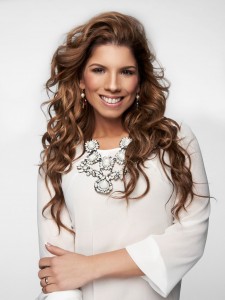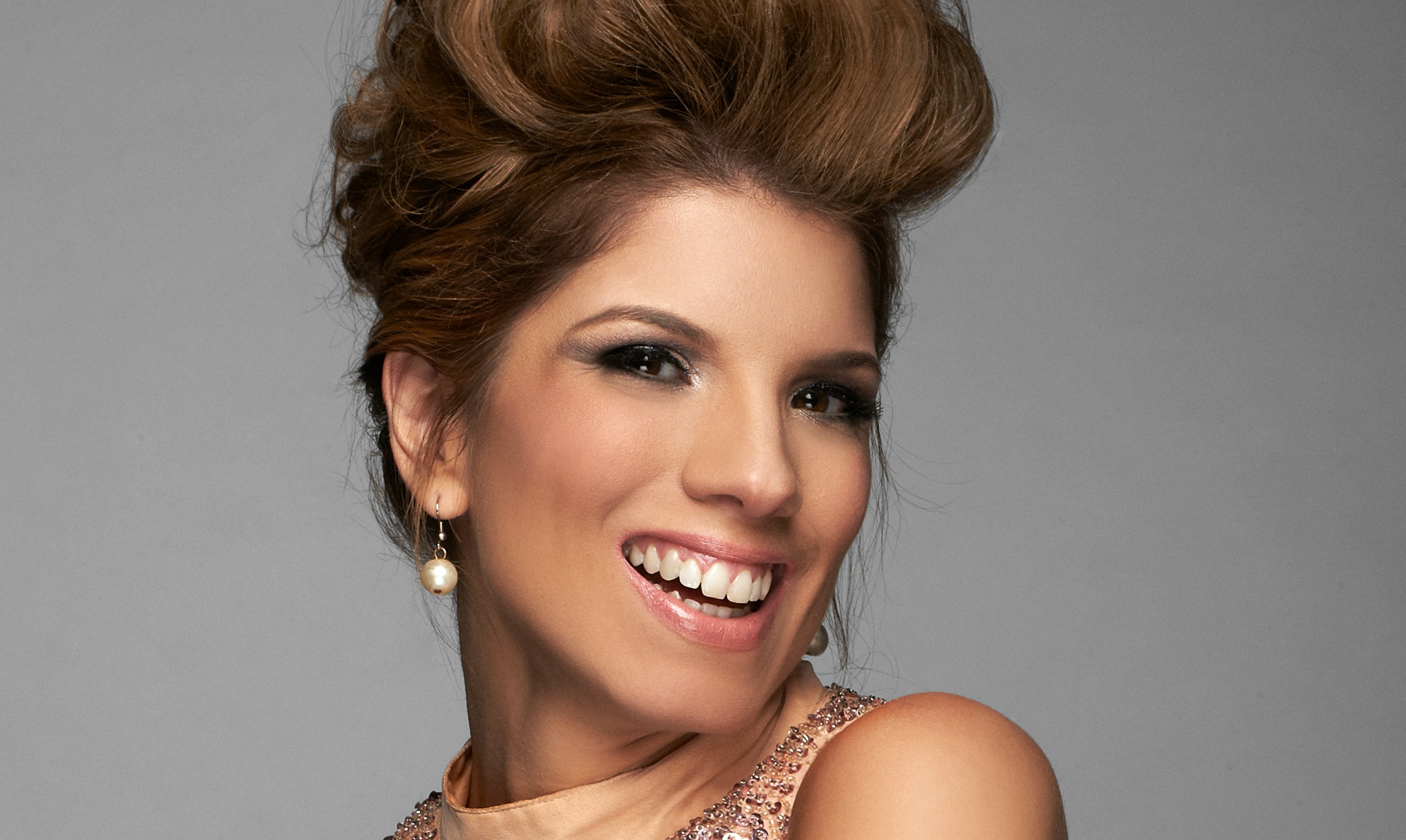
Gaby Natale’s television show “SuperLatina” went national in June 2014, spreading its message that “Hispanic women can have it all” across the United States and Puerto Rico. The New Year has given the show even more exposure, going international with airings on Neuvo Mundo TV in Quebec and Ontario, Canada.
Natale, a 36-year-old native of Argentina, is the host and producer of “SuperLatina,” a six-time Emmy-nominated television show about entertainment and lifestyle. Natale owns the rights to the production and is the president and co-founder of her own television studio, AGANAR Media. She stresses that the key to television success is to think beyond the TV set.
“Don’t just think about television. Think about what is the content you want to do, what is the content you want to produce,” she said. “And then just start. Start sharing it with the world. Start creating a platform. Start creating an audience. I feel like we’re in a very, very exciting time in the media industry. The industry is changing for the better. There are less gatekeepers than before.”
Natale decided to immigrate to Washington D.C. after graduating with a master’s degree in journalism because a serious economic crisis in Argentina made it impossible for her to find a job.
“There were riots in the streets. The president at the time left what would be the White House in Argentina, it is called the Pink House, in a helicopter because there were a lot of social discomforts. It was not the best of times to graduate with your master’s degree and go ready to conquer the world and look for a job,” Natale recalled.
“Every time I went to a job interview, I would go to publishers or editors or newsrooms, and the news managers or the news editors would tell me ‘You know, you come here for a job and today I have to fire half of my staff.’ It was a very tough time,” she added.
Natale originally moved to Washington D.C. to work for a public relations firm, and then was assigned to a project in northern Mexico. She completed reports from the border between Arizona and Mexico, an area notorious for being dangerous and deadly. When an Univision affiliate station noticed Natale’s work and offered her a job, she accepted the position and moved to Texas.
“I started working as a news anchor and then what I started feeling was that I wanted to tell my own stories. I’m very sentimental. When you fall in love with a story you want to tell it. Of course, you’re in a newsroom. Sometimes your story gets picked, sometimes it doesn’t. So I started feeling that I really wanted to make my own choices and have editorial and creative control over what I did,” she recalled.
Natale’s green card was her ticket to creative control. After applying three times because of backlogged paperwork, she received her green card in 2007 and decided to start her own business.
“I earned the right to start my own company because before that I was on a work visa and I didn’t have any right to start my own company, and also that is the type of visa where if you lose your job, you lose your status and you have to leave the country. So imagine, you don’t go ask for raises, you don’t say no to any projects. It’s not a position where you really can negotiate with your employer. So when the green card got approved I said that was my ticket to freedom. I’ve been through so many things already and I come from such a far place. I didn’t come to America just to do some of the things that I liked. It was to do all of the things that I liked,” she explained.
Inspired by strong women in the mainstream media, Natale started “SuperLatina” to share stories that interest her while also controlling how they were told.
“There were many women from Oprah to Tyra Banks at the time, to Martha Stewart also, who were involved in not just delivering their message, but they were involved in everything,” she said. “They had a production company. They had a staff. Some of them, like Oprah, have their own television studio. Some of them like Martha Stewart have many retail projects.
“It was a very appealing idea for me, that model where really from beginning to end you have creative control, you have financial control, and you have a copyright. I thought it was very fair that if the idea was your idea and you worked for it and you thought about it from beginning to end, that you could profit from it,” she continued.
Initially, it was a struggle for Natale to gain financial support for “SuperLatina.”
“I started it with my husband. We had very little money to start the company. We went to three different banks and we got rejected because we didn’t have any credit history in the United States. Finally I got the advice from the Small Business Administration to go to a credit union,” she recalled.
Natale used the loan from the credit union to purchase the basics: a camera, a tripod, and a microphone. Her first studio was in the carpet warehouse of a mall, and her first set had to be put on wheels so that when filming ended, the studio equipment could be removed and the carpets could move back in.
The start of the show coincided with the beginning of the 2007-2008 financial crisis in the United States, but Natale used this to her advantage. She used her personal experience with the economic problems in Argentina to grow her show despite national hardships.
“I make jokes because I said, ‘I’m taking the recession with me wherever I go.’ Also I said, ‘OK, I have to leave a message with my show that you have to make the most out of whatever happens to you. If you have lemons, you have to make lemonade,’” she recalled.
“We started thinking, ‘What are the lessons and things that we’ve learned from the crisis in Argentina that we can put to use here?’ There are some universal things that happen when you have less money,” she said.
Natale knew that newsrooms were going to be smaller and stations were going to have tighter budgets, and she kept this in mind when she pitched “SuperLatina” to television stations.
“The TV stations were canceling weekend newscasts or morning shows, so there was half-hour [spots] available in many TV stations,” she explained. She proposed the show as a way for stations to expand their programming without needing a big budget, while simultaneously providing their audiences with something new.
Natale decided to start her own small television studio, AGANAR Media, as “SuperLatina” gained popularity. She had no previous entrepreneurial experience and never imagined herself owning a company, but she wanted to be able to build and own a set for “SuperLatina.”
“The United States is a country that is all for entrepreneurship. It’s amazing, the amount of help that you can get for free from the Small Business Administration, from how to get your taxes to advice on smaller issues. People who would take the time to oversee your business plan and to give you classes, I think it’s amazing. In the beginning, when I first started my company, I took advantage of all the free help that was out there,” she said.
AGANAR Media now develops television shows and grassroots marketing campaigns, representing brands such as McDonald’s, Ford, Procter & Gamble, and Macy’s. The company specializes in content development, experimental marketing, social media, and branded entertainment.
Natale attended the Latin Grammys in Las Vegas in November 2014; proof of how much “SuperLatina” has grown since its original filming in a carpet warehouse. She used the award show as an opportunity to gain one-on-one interviews with Latin singers and other talents for the show’s next season. Visit SuperLatina.tv for television listings and the latest stories from Natale.






Add Comment